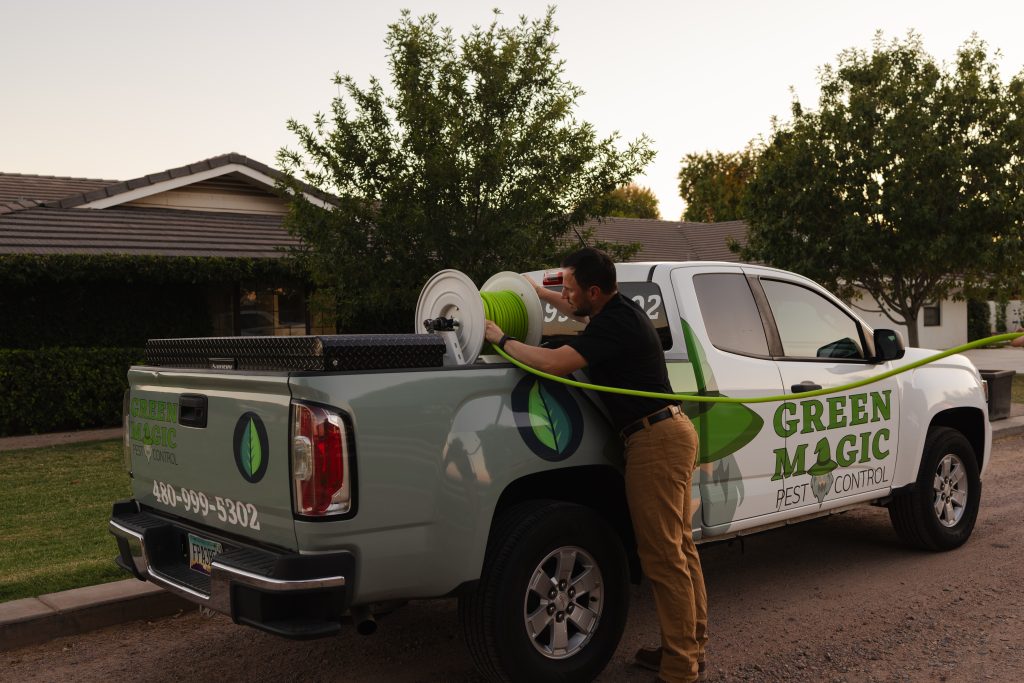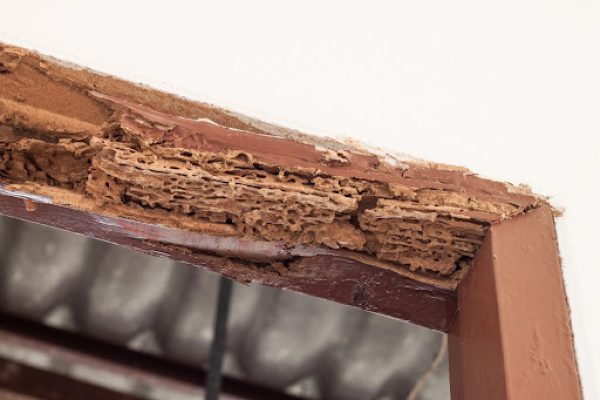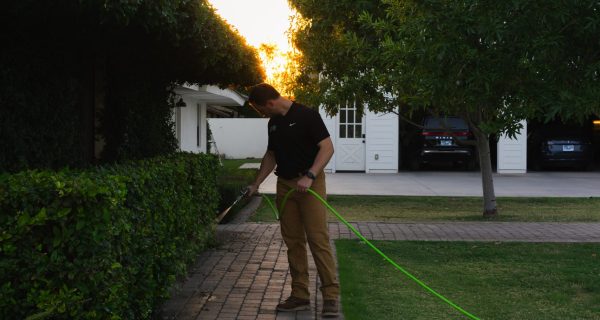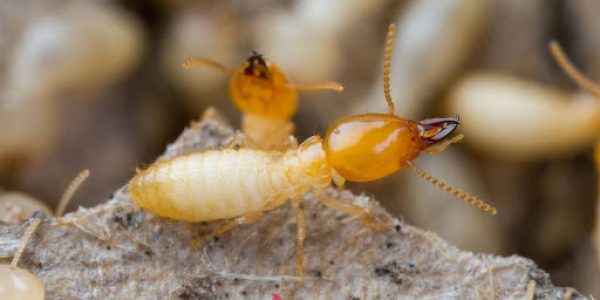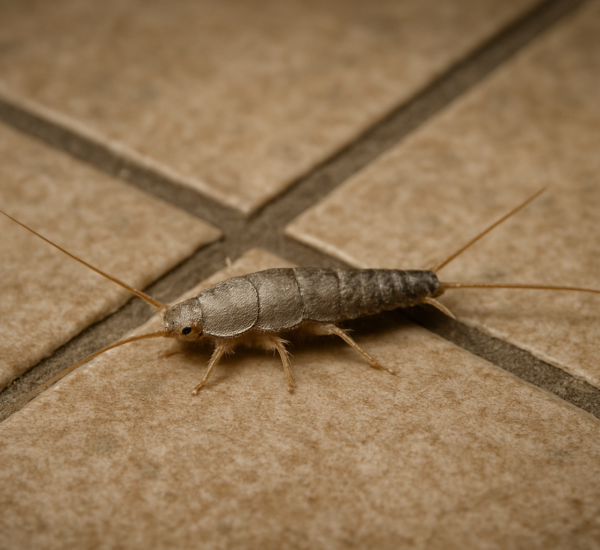Scorpions are one of the most common and unwelcome pests found around Arizona homes. While they prefer natural hiding spots, landscaping rocks provide the perfect shelter for them to rest during the day and hunt at night. Rocks retain moisture and heat, offering ideal conditions for scorpions to nest and breed. If left unchecked, they can multiply quickly and make their way indoors. Preventing these pests from nesting around your property begins with smart landscaping and consistent pest control. Green Magic Pest Control specializes in keeping scorpions out of outdoor spaces with proven and safe treatment strategies.
Why Scorpions Nest in Landscaping Rocks
Landscaping rocks create small, dark crevices that scorpions use for protection from predators and sunlight. Arizona’s hot climate makes these shaded areas especially appealing. Rocks also attract insects like crickets and beetles, which serve as a food source for scorpions. As a result, rock beds can become both shelter and hunting ground. Once scorpions establish a habitat, they tend to stay close, raising the risk of infestation. Green Magic Pest Control helps homeowners identify these nesting areas and eliminate the conditions that allow scorpions to thrive near homes and outdoor living spaces.
Remove Moisture and Standing Water Sources
Moisture plays a major role in attracting scorpions to your yard. They are drawn to damp soil, dripping irrigation lines, and puddles that form between rocks. Reducing excess water discourages them from nesting nearby. Inspect your irrigation system for leaks and make sure sprinklers are not overwatering rock areas. Avoid placing plants that require heavy watering directly beside decorative stones. Green Magic Pest Control advises homeowners to maintain balanced watering schedules and improve yard drainage, making the environment less appealing to scorpions and other moisture seeking pests.
Keep Rock Beds Well Maintained
Regular maintenance of landscaping rocks is essential for preventing scorpion activity. Over time, debris such as leaves, mulch, and dirt can accumulate between rocks, creating dark and humid hiding spots. Rake rock beds frequently to remove organic matter and disrupt potential nesting areas. You can also turn and reposition rocks occasionally to reduce the number of stable crevices available. This discourages scorpions from settling in. Green Magic Pest Control often pairs professional pest treatments with simple landscape maintenance tips that make your yard less inviting to scorpions year round.
Create a Barrier Between Rocks and Your Home
Scorpions often use rock beds near the foundation as a pathway into homes. Creating a physical barrier can help stop their movement. Leave a clear strip of gravel or concrete between your rock landscaping and the walls of your home. This open space reduces hiding places and makes it harder for scorpions to cross undetected. You can also seal foundation cracks and gaps where they may enter. Green Magic Pest Control performs thorough perimeter inspections to locate entry points and recommend sealing solutions that keep scorpions outside where they belong.
Trim Vegetation and Limit Shelter Opportunities
Bushes, ground cover, and low hanging branches near rock areas create additional shade and protection for scorpions. Keeping vegetation trimmed and spaced away from rock beds improves visibility and airflow, which scorpions dislike. Reducing thick plant cover also helps eliminate insects that serve as their prey. Simple maintenance, such as trimming plants and removing excess mulch, can make a big difference in discouraging nesting. Green Magic Pest Control’s technicians often identify areas of overgrowth during inspections and provide tailored recommendations to keep landscaping both attractive and pest resistant.
Apply Professional Perimeter Treatments
Even with good maintenance, scorpions can still migrate into your yard from surrounding areas. Professional pest control treatments create a strong barrier around your home and landscaping features. Targeted applications of eco friendly products penetrate the cracks and crevices where scorpions hide. These treatments also eliminate other insects that attract them to the area. Green Magic Pest Control uses specialized scorpion control products designed for Arizona’s desert climate. With regular service, homeowners can maintain a consistent barrier of protection that reduces activity around rock beds and throughout the property.
Schedule Routine Inspections and Monitoring
Ongoing inspection is the best way to ensure scorpions do not return. Professional pest control teams can identify early signs of activity, such as molted exoskeletons or small burrows beneath rocks. Routine monitoring allows technicians to adjust treatments and address problem areas quickly. Green Magic Pest Control offers comprehensive scorpion control programs that combine inspection, prevention, and customized treatment plans. By staying proactive, homeowners can enjoy their outdoor spaces without worrying about hidden pests lurking in their landscaping.

